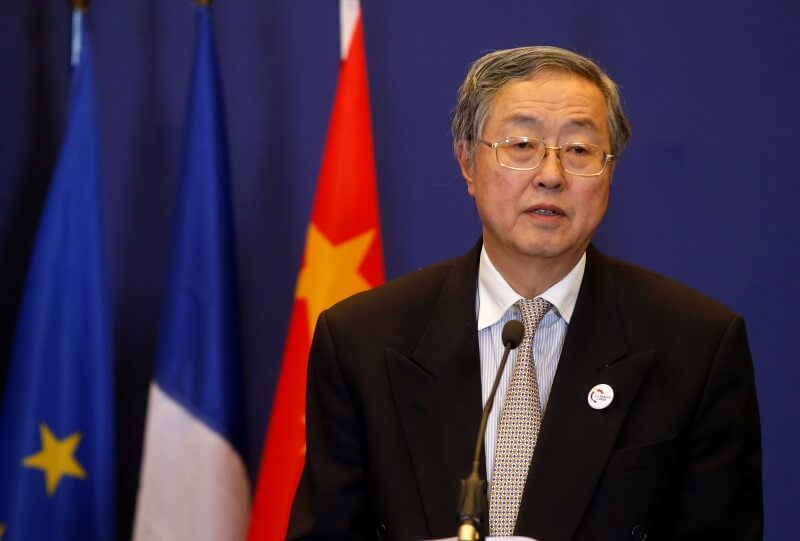By David Lawder and Howard Schneider
WASHINGTON (Reuters) – People’s Bank of China governor Zhou Xiaochuan said on Friday a more flexible yuan currency was important for China’s development and reforms, and that monetary policy would be adjusted “in a dynamic way” to meet those goals. Zhou, in a lecture at the International Monetary Fund, said the PBOC was listening to advice from foreign finance officials, but noted that the bank is pulled in many directions with multiple objectives, creating political “tensions.” “We are paying close attention to international discussions on Chinese monetary policy and will adjust our policy in a dynamic way to meet the demand of China’s economy, reform and development,” Zhou said. China had been criticized for years for keeping its yuan artificially low against the dollar, but since devaluations last August and in January roiled markets, the PBOC has spent hundreds of billions of dollars in foreign exchange reserves to prop up the yuan’s value. Zhou also has pledged to avoid devaluations to gain a trade advantage. Amid Friday’s market turmoil in response to Britain’s vote to leave the European Union that sank the pound, euro and yen, China’s yuan Earlier on Friday in Beijing, the PBOC pledged to provide ample liquidity and keep the yuan stable.
Zhou said yuan exchange rate policy should serve China’s “overall development strategy,” including its transition to a market economy.
He added that it was important that “the exchange rate policy is meeting the higher requirement of the market economy. Which means that the exchange rate must be more flexible, and the convenience and flow of current account, capital account money can be more free.” But Zhou said the central bank’s independence was sometimes under pressure due to its multiple objectives that create “tensions” with other government agencies. These include maintaining growth and price stability, maintaining the balance of payments, reforming the banking sector and developing financial markets. “If a central bank has multiple objectives, it may be harder to be immune from the political reality,” he said. “Ultimately the transition to a market economy will by and large be completed.” Once this happens, the PBOC’s objectives will be simplified and it will become more like a western central bank, he said.
Regarding the “Brexit” vote, Zhou said more study was needed to fully understand the implications of the decision. But he emphasized the need for central banks and the IMF to communicate and coordinate actions to “safeguard the financial market stability and the global economy.” (Reporting by Howard Schneider; Editing by Chizu Nomiyama and Tom Brown)
China central bank chief sees ‘dynamic’ monetary policy adjustments

By David Lawder and Howard Schneider
















